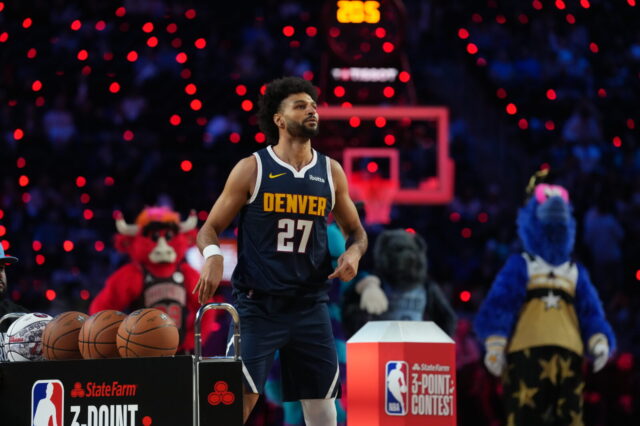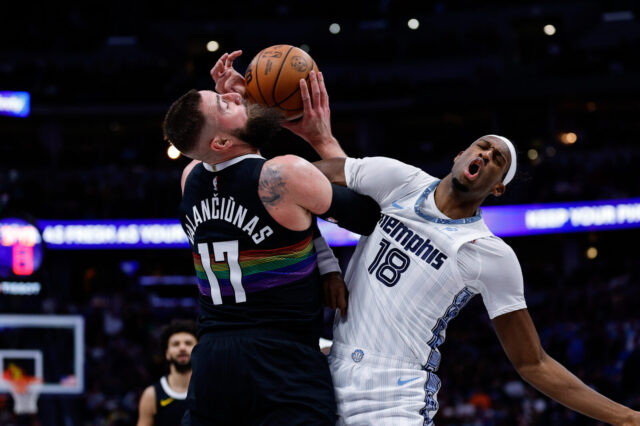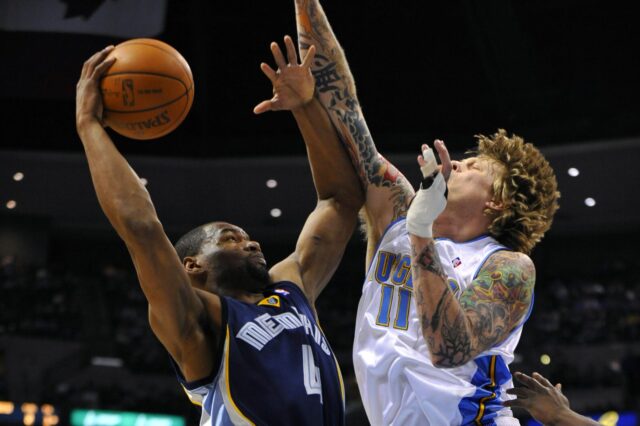67 years. It sounds a pretty long time. Older than most Denver Stiffs fans. Older than Bill Murray, Kurt Russell, Phil Collins, Jane Seymour, Tom Petty, or Lynda Carter (all of whom are 66, by the way). From that lens, 67 years seems an eternity to many. But in historical terms, it’s truly a blip. A mere two-thirds of a century. Most everyone reading this should see the age of 67, and will probably think it a pretty short amount of time by that birthday, which will only make the remainder of the journey seem all the shorter.
67 years is also the rather-brief period since African-American players first played in an NBA game, with Chuck Cooper, Nat “Sweetwater” Clifton, and Earl Lloyd all joining the league in the 1950-1951 season. And basketball had some catching up to do. Jackie Robinson had broken the barrier in major league baseball in 1947, (though Moses Walker ended up having something posthumous to say about that recently) and Robinson’s former UCLA teammate Kenny Washington had gotten into pro sports a year ahead of Jackie with the NFL’s Los Angeles Rams. The NHL and Willie O’Ree made it all four majors in 1958. Each man has some harrowing stories of being the first in his league, too easily found in a quick internet search of their name.
The quick math tells you that it’s been just over seven decades since African Americans didn’t play in any of the major professional sports. As long a time as seven decades seems, it’s still a matter of context. This past half-decade with Denver Stiffs has literally been a flash. Do that 13 more times, and I’d have those seven decades knocked out. There are over 35 million Americans still alive who have seen every day of those 70 years. What a massive change for them.
Sports’ evolution on this front has mirrored the long-term shift in the broad national conversation. The NBA now sees players from a huge variety of backgrounds, both racial and national. The influence of each of those additions has had a huge impact, the game an amazing display of teamwork and strategy, of mental and physical prowess. The most diverse game in the U.S.? It’s not the NBA. Major League Soccer has the most evenly split frames in the diversity game.
But your Denver Nuggets have certainly enjoyed the fruits of diversity, with players from all over the world, of every opinion, stripe, and hue making meaningful contributions over their history. It’s a distinction they could trumpet more proudly, as it’s been such an integral part of their history and culture. From a macro level, the Nuggets have been more successful by just mixing things up. Just like the NBA. Just like professional sports. Things improved when everybody got a fair shot to contribute.
And is it any wonder? Giving the best players an opportunity could only increase the talent pool, level of competition, and long-term strategy for teams and players alike. Exposing teams to different styles that evolved out of different parts of the world changed the way the game is played by everyone. By learning from one another, working together, and coming to realize how much they had in common, they made something more. Something greater.
It’s no accident that this methodology has been on mind the last few days, given the tragedy that racism and hatred wrought in Charlottesville. Such moments leave one looking for answers. Hoping that maybe there are ways we can learn from the successful examples placed right in front of our faces, instead of wishing we were still shooting at peach baskets.


